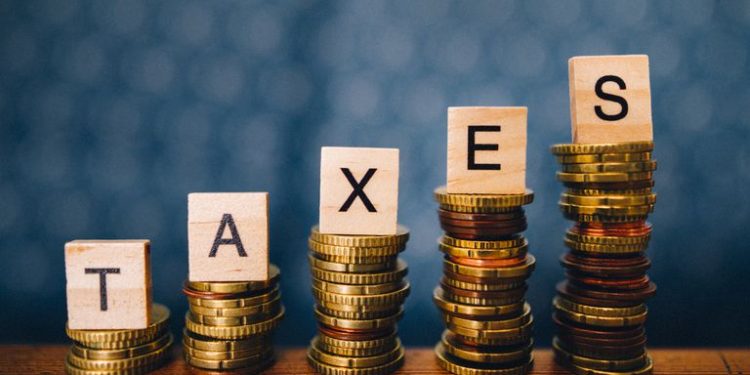A paltry 1.5 million Ghanaians are said to be making their tax payments to government.
According to John Otchere, lead consultant at the Ghana Anti-Corruption Coalition, this is out of the total 6 million Ghanaians expected to be making tax payments to government.
In percentage terms, the 1.5 million Ghanaians making tax payments represent only 5 percent of the general population – 30 million – and just 25 per cent of the of expected 6 million people who are to make regular tax payments.
Speaking to the media at a dissemination meeting to promote equity in tax incentives and tax exemptions, Mr Otchere noted that government ought to broaden its tax base if it is to achieve the Sub-saharan average tax to GDP of 17 per cent.
“Currently in Ghana, only 1.5 million people pay their taxes but in actual fact, 6 million people are to pay tax so if Ghana wants to achieve the Sub-saharan average tax to GDP of 17 per cent, it then has a lot to do in broadening the tax base,” he posited.
“Ghana collects less taxes than it should and therefore relies heavily on external financing,” he stressed.
Mr Otchere advised that government simplifies the filing process of taxes and improve revenue collection in order to reduce leakages which breed corruption.
At the meeting, stakeholders present called for the swift passage of the tax exemption bill to regulate the country’s tax regime. Ghana is ranked among African countries with the lowest tax to GDP ratios.
The country has in the last few years averaged around 13 per cent of tax to GDP ratio.
Meanwhile, tax exemptions in respect to import duties, import VAT, import NHIL, and Domestic VAT have grown from Ghs 392 million in 2010 to Ghs 4.66 billion in 2018.
To curb the growing phenomenon which is adversely affecting the country’s revenue generation efforts, the Finance Minister, Ken Ofori-Atta in March 2019, submitted the Tax Exemptions Bill to Parliament.
The object of the Bill is to rationalize the current exemptions regime on taxes, levies, fees and charges to improve domestic revenue mobilization.
This is to be achieved by consolidating existing statutory provisions on tax and other exemptions and to provide for the administration of exemptions.
The key Provisions of the Exemption Bill, 2019, include the following:
- Contains preliminary provisions that seek to establish its objective and application, define tax exemption and rationalize the current exemptions regime by making changes where necessary, consolidate existing statutory provisions on exemptions, and provide for the administration of exemptions;
- Vests in the Minister of Finance the power to deal with all aspects of exemptions, including vetting requests for exemptions, negotiating, seeking Cabinet and Parliament approval, monitoring the use of exemptions as an economic management tool, improving the effectiveness of the exemption regime, and ensuring compliance with the Bill;
- Grants exemptions to privileged persons, diplomats and diplomatic missions, persons with disability, religious persons, donors and charity organizations, and other privileged persons; exempts goods imported by the President or on his behalf for personal use from customs duties, taxes and port charges; and provides, on reciprocal basis, exemptions from the payment of custom duties and taxes on household and personal effects, vehicles to diplomats, employees of the United Nations, the African Union, Community of the West African States, the Commonwealth.
- It also grants tax exemptions for development partners’ projects, including technical cooperation programs, grants-funded programs and projects, concessional facility projects and commercial government projects.
- Exempts religious organizations from the payment of customs duties and taxes on a number of worship-related items and also items for educational and health purposes imported by development partners, charity organizations, philanthropists or other not-for-profit organizations as gifts for charitable purposes.
- Grants tax exemptions to private businesses, including free zone enterprises, special tax incentives for strategic investments, and general tax incentives, and stipulates the procedure for granting such special tax incentives.
- Deals with user charges, fees and transnational levies. Under the Bill, a security service shall be considered as a “state entity” and so the provisions on exemptions in the procurement of goods, services and projects apply. A port user charge or fee charged by a service provider for the provision of a service shall be paid for by the person that uses the service. No person shall be exempted from a levy imposed as an obligation to a regional organization such as the African Union or ECOWAS unless the exemption is sanctioned by the relevant regional organization.
- Provides for a number of miscellaneous issues, including executive approval in emergency situations where Cabinet approval cannot be obtained; transfer of ownership of exempt item by a holder of an exemption; offences and penalties for unauthorized commitment, provision of false information or document, failure to disclose and/or report relevant information and their associated convictions to fines and imprisonment.








